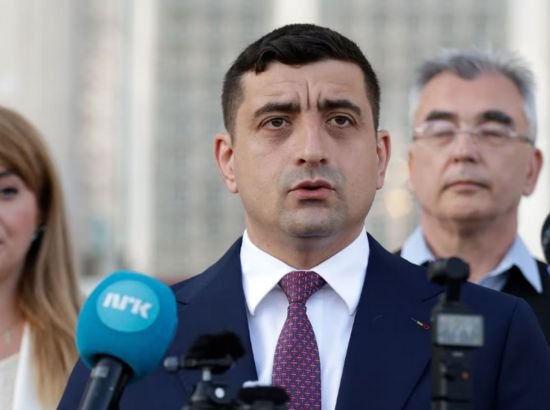
Far-Right Romanian presidential candidate George Simion’s first-round victory brings nationalist rhetoric to the forefront of Romania’s political future
In a dramatic turn of events, far-right Romanian presidential candidate George Simion has emerged as the front-runner in the first round of Romania’s presidential election rerun. The Trump-aligned nationalist secured nearly 41% of the vote, significantly outpacing his closest rival and raising concerns across the European Union about a potential shift in Romania’s foreign and domestic policies.
With nearly all ballots counted, Simion captured 40.96% of the vote, more than doubling the tally of centrist Bucharest mayor Nicușor Dan, who secured 20.99%. This sets the stage for a high-stakes runoff between Simion and Dan on May 18.
Simion, 38, a vocal EU critic and leader of the Alliance for the Union of Romanians (AUR), celebrated the results as a victory for “Romanian dignity” and sovereignty. His campaign has emphasized opposition to military support for Ukraine and promoted a “Melonisation” of Europe, echoing Italy’s far-right leadership style.
Simion’s success has unsettled EU observers. If elected, he would join the ranks of nationalist leaders in Hungary and Slovakia who frequently challenge Brussels on key issues. As president, Simion would wield significant influence over Romania’s foreign policy and defense strategy—particularly sensitive given Romania’s proximity to Ukraine and its NATO membership.
Simion has pledged to maintain Romania’s sovereignty within the EU, rejecting uniform EU mandates. He also reiterated his admiration for former U.S. President Donald Trump and expressed intent to create a European alliance in the “spirit of MAGA.”
Dan, a pro-European, anti-corruption advocate, faces a difficult campaign ahead. The centrist and center-left parties, which supported third-place candidate Crin Antonescu, may hesitate to back Dan due to internal rivalries, making it harder to consolidate opposition votes.
Political analysts warn that Simion has a broader voter base and could capitalize on the support of former Prime Minister Victor Ponta’s followers. Additionally, Simion’s promise to appoint the controversial Călin Georgescu as prime minister has reignited tensions. Georgescu, whose earlier victory was annulled over alleged Russian interference, remains under investigation but endorsed Simion’s campaign.
Simion’s stance against military aid to Ukraine, despite Romania’s active support of Kyiv, signals potential policy reversals. Under the current administration, Romania has provided air defense systems, trained Ukrainian pilots, and facilitated massive grain exports through the Black Sea.
The far-right Romanian presidential candidate’s rise signals a growing nationalist sentiment that could reshape Romania’s stance in European and transatlantic alliances if Simion prevails in the runoff.